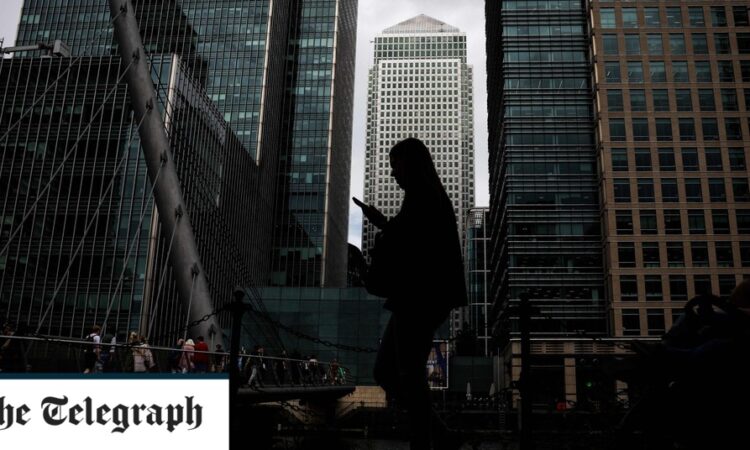
Thanks for joining me. China’s efforts to become the world’s largest economy have come under threat after the damage done by zero-Covid policies.
China’s gross domestic product will not exceed that of the US until the mid-2040s and even then it may be by “only a small margin” before “falling back behind”, according to a Bloomberg Economics study.
Before the pandemic, China had been expected to take and hold the position as the world’s largest economy as early as the start of next decade.
The study said: “The post-Covid rebound has run out of steam, reflecting a deepening property slump and fading confidence in Beijing’s management of the economy.
“Weak confidence risks becoming entrenched — resulting in an enduring drag on growth potential.”
It comes as a survey of China’s services sector in August showed output expanded at the slowest rate since Covid restrictions were lifted, as the economy was hit by a weaker outlook and ongoing turmoil in its property market.
The Caixin services purchasing managers’ index fell to 51.8 last month from 54.1 in July, its weakest pace since December.
5 things to start your day
1) Shoppers paying a heavy price for debt-fuelled takeovers of Britain’s supermarkets | Questions are at last being raised over the longer-term impact such deals
2) Hinkley Point C delays raise ‘big questions’ about nuclear power, says RWE chief | Britain’s flagship nuclear power station will not open until 2027 at the earliest
3) How Denmark’s economy got hooked on Wegovy | Amid the celebrations concerns are being raised about an over-dependence on one niche
4) China makes microchip breakthrough in blow to Biden’s tech sanctions | Chips in Huawei’s latest device appear to have been made using secret European tech
5) Net zero ban on petrol cars means EU and Britain cannot compete with China, says BMW chief | Chinese manufacturers have price advantage in electric vehicle production
What happened overnight
Asian stocks fell after disappointing China services data added to concern over the nation’s economic malaise.
Hong Kong shares led regional equity declines, with the benchmark index slipping more than 1pc.
China’s services sector saw the slowest growth this year in August, an industry survey showed, adding to evidence the economic recovery is losing traction.
The MSCI Asia Pacific Index is heading for its first drop in seven days. Japan’s Topix fell 0.3pc.
Australian stocks and the Aussie dollar were both little changed after the central bank kept rates unchanged for a third month in the final meeting under Governor Philip Lowe.
Wall Street was closed on Monday for a national public holiday.






